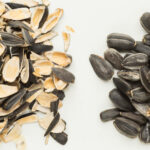
Overview
Turkey is more than just a holiday staple—it’s a nutritional powerhouse that deserves a spot in your diet year-round. Packed with high-quality protein, essential vitamins, and minerals, turkey provides numerous health benefits, supporting everything from muscle growth to immune function. Let’s explore why turkey is such a healthy and versatile choice for your meals.
Healthy Source of Protein
Protein is a vital nutrient responsible for many functions in the body, including structural cell repair, nutrient transportation, immune response, and energy production. However, its role in muscle growth and repair stands out
Related : What Happens When You Quit Caffeine
Turkey is an excellent source of high-quality protein. A 4-ounce serving of turkey breast provides about 27 grams of protein, including all nine essential amino acids necessary for muscle development. Whether you’re aiming to lose weight, build lean muscle, or simply maintain a balanced diet, turkey can be an invaluable addition to your meals
- Promotes muscle repair and growth.
- Helps in the synthesis of enzymes and hormones.
Contributes to a feeling of fullness, aiding weight management
Low in Fat
Turkey, particularly the skinless breast meat, is low in fat, making it a heart-healthy choice. Saturated fats, found in higher quantities in red meats, can contribute to high cholesterol and an increased risk of heart disease. Turkey offers a lean alternative without compromising on flavor
- Turkey breast (skinless): 1 gram of saturated fat per 100 grams.
- Beef: Approximately 8 grams of saturated fat per 100 grams.
By choosing turkey, you can enjoy a flavorful, protein-packed meal while supporting cardiovascular health.
Rich in Vitamins and Minerals
Turkey is more than just a lean protein—it’s a nutritional treasure trove. It contains a variety of vitamins and minerals essential for optimal health
- B Vitamins: Turkey is a rich source of niacin (B3) and vitamin B6, which are crucial for energy production and brain function.
- Niacin helps convert food into energy.
- Vitamin B6 supports brain health and mood regulation.
Selenium: A powerful antioxidant that strengthens the immune system and supports thyroid function. A 4-ounce serving provides over 50% of the daily recommended intake
Related : 14 Signs You’re Low on Vitamin B12
Zinc and Phosphorus:
- Zinc aids in wound healing and immune response.
- Phosphorus is essential for strong bones and teeth.
Supports Immune Health
Selenium, abundant in turkey, plays a vital role in boosting the immune system. It protects cells from oxidative damage, which contributes to aging and chronic diseases
Turkey helps enhance the body’s defense against infections, especially during colder months.
Selenium deficiency has been linked to weakened immune responses, underlining the importance of including selenium-rich foods like turkey in your diet.
Turkey’s Role in Satiety
Feeling full after a meal can help prevent overeating and promote weight management. Turkey’s high protein content is key to this, as protein takes longer to digest than carbohydrates. Additionally, it triggers hormones such as cholecystokinin (CCK) and peptide YY (PYY), which signal the brain that you are satisfied
- Reduces the likelihood of snacking between meals.
- Helps maintain healthy blood sugar levels
Nutritional of Turkey
Here’s what a 4-ounce serving of turkey breast offers:
- Calories: 129
- Protein: 26.8 g
- Fat: 1.67 g
- Saturated Fat: 0.327 g
- Vitamin B3 (Niacin): 11.2 mg (70% RDA)
- Vitamin B6: 0.919 mg (54% RDA)
- Vitamin B12: 0.712 mcg (30% RDA)
- Selenium: 25.7 mcg (47% RDA)
- Zinc: 1.45 mg (13% RDA)
- Phosphorus: 227 mg (32% RDA)
Related : Proven Ways to Lose Weight Without Diet or Exercise
Risks of Eating Turkey
While turkey is generally healthy, there are a few considerations to keep in mind:
- High Purine Content
For individuals with gout, turkey’s purine content may increase uric acid levels, potentially triggering symptoms.
- Kidney Concerns
People with kidney issues should monitor their protein and mineral intake, as excessive protein can strain kidney function.
- Processed Turkey Products
Many store-bought turkeys and deli meats are high in sodium, which can impact blood pressure and heart health. Choose fresh, unprocessed options whenever possible.
Tips for Preparing and Enjoying Turkey
- To maximize the health benefits of turkey, proper preparation is essential
- Always use separate cutting boards for raw meat and produce.
- Cook turkey to an internal temperature of 165°F to ensure it’s safe to eat.
Healthy Cooking Tips
- Season turkey with herbs and spices instead of salt to reduce sodium.
- Pair turkey with whole grains and colorful vegetables for a balanced meal.
Thanksgiving Myths: Does Turkey Make You Sleepy?
Contrary to popular belief, turkey itself isn’t to blame for post-meal drowsiness. While it contains tryptophan, an amino acid involved in serotonin and melatonin production, the real culprits are overeating, high carbohydrate intake, and alcohol consumption.
Healthy Thanksgiving Tips
Enjoy your holiday feast while staying mindful with these simple strategies:
- Stay Active: Incorporate a walk or light exercise before and after the meal.
- Don’t Skip Breakfast: Start the day with a protein- and fiber-rich breakfast to control appetite.
- Practice Portion Control: Fill one plate and eat slowly to avoid overeating.
- Limit Alcohol: Alternate with water to stay hydrated and reduce calorie intake.
- Opt for Healthier Recipes: Modify traditional dishes to lower fat and sugar content
Related : What Happens if You Drink Too Much Water?
The Takeaway
Turkey is a lean, nutrient-dense food that offers a range of health benefits. From supporting muscle growth and immune health to enhancing satiety and providing essential vitamins and minerals, turkey is a delicious and versatile choice for any meal. Whether you’re enjoying it during Thanksgiving or incorporating it into your year-round diet, turkey proves to be more than just a holiday favorite—it’s a wellness champion.
Prepared thoughtfully, turkey can be the star of a healthy, satisfying, and flavorful meal.
Happy Thanksgiving
FAQs About the Health Benefits of Turkey
- Is turkey a good source of protein for weight loss?
Yes, turkey is an excellent source of lean, high-quality protein, which helps build muscle, maintain satiety, and reduce hunger cravings. Its low fat and calorie content make it a great option for those trying to lose weight.
- How does turkey support immune health?
Turkey is rich in selenium, a powerful antioxidant that protects cells from oxidative damage and strengthens the immune system. Including turkey in your diet can help bolster your body’s defenses, especially during cold and flu seasons.
- Can turkey be unhealthy?
While turkey is generally healthy, processed turkey products often contain high sodium levels, which can affect blood pressure. Additionally, individuals with gout or kidney issues should consume turkey in moderation due to its purine and protein content.
- Does eating turkey really make you sleepy?
No, turkey itself does not cause sleepiness. While it contains tryptophan, the drowsiness often experienced after a holiday meal is more likely due to overeating, carbohydrate-heavy dishes, and alcohol consumption












